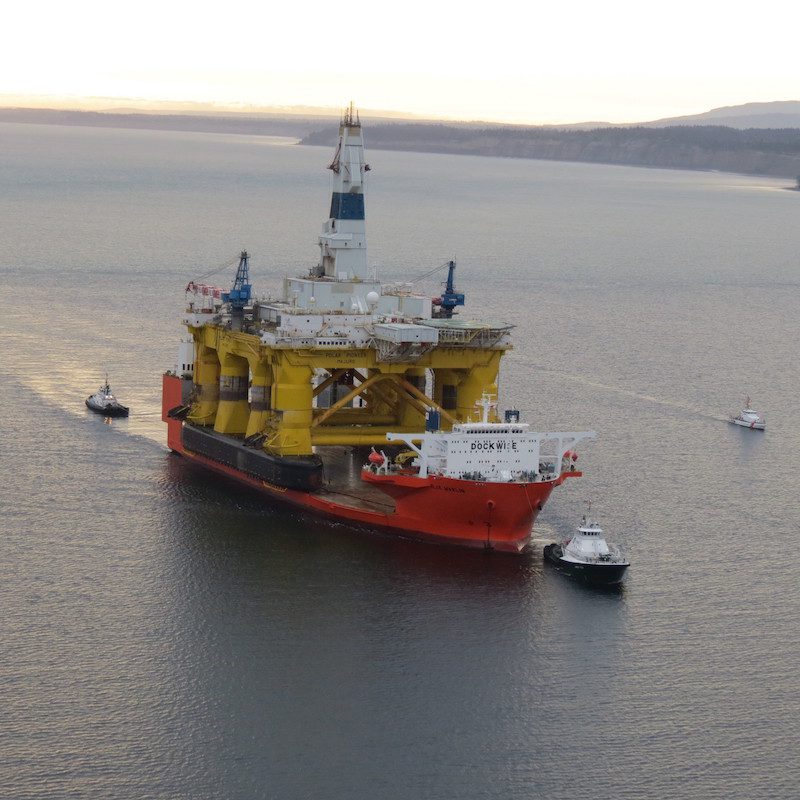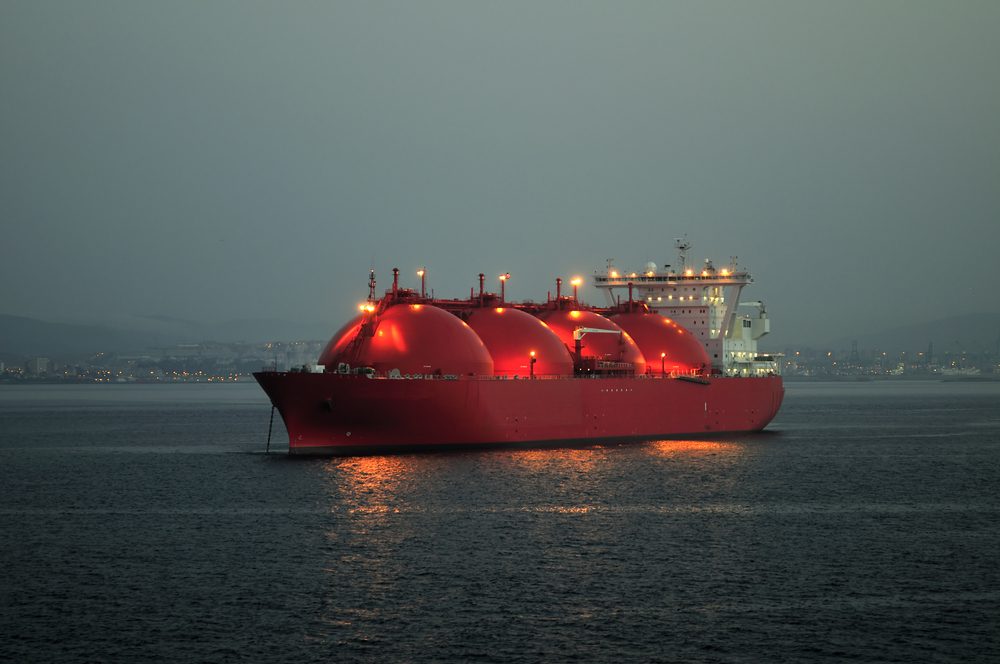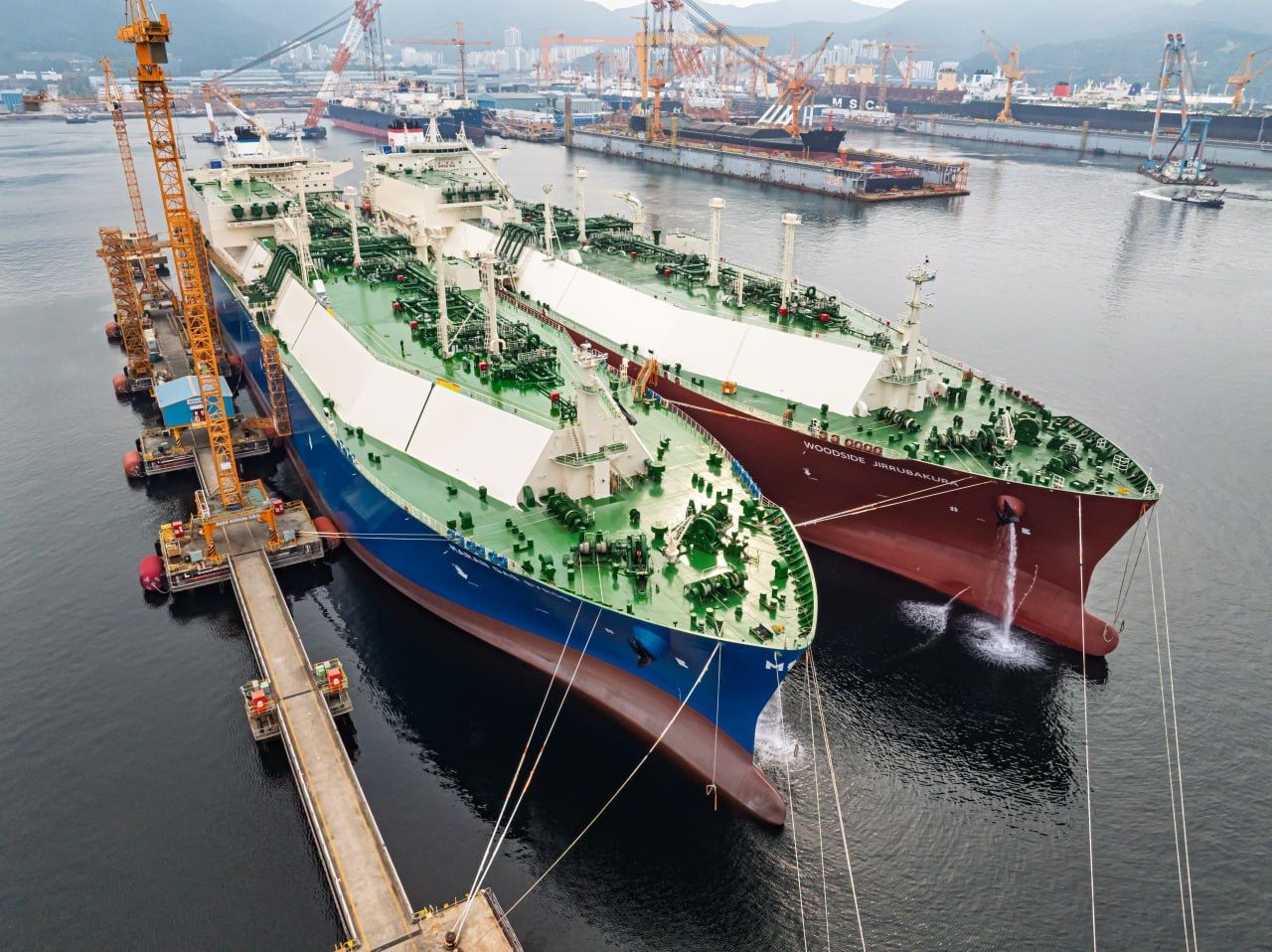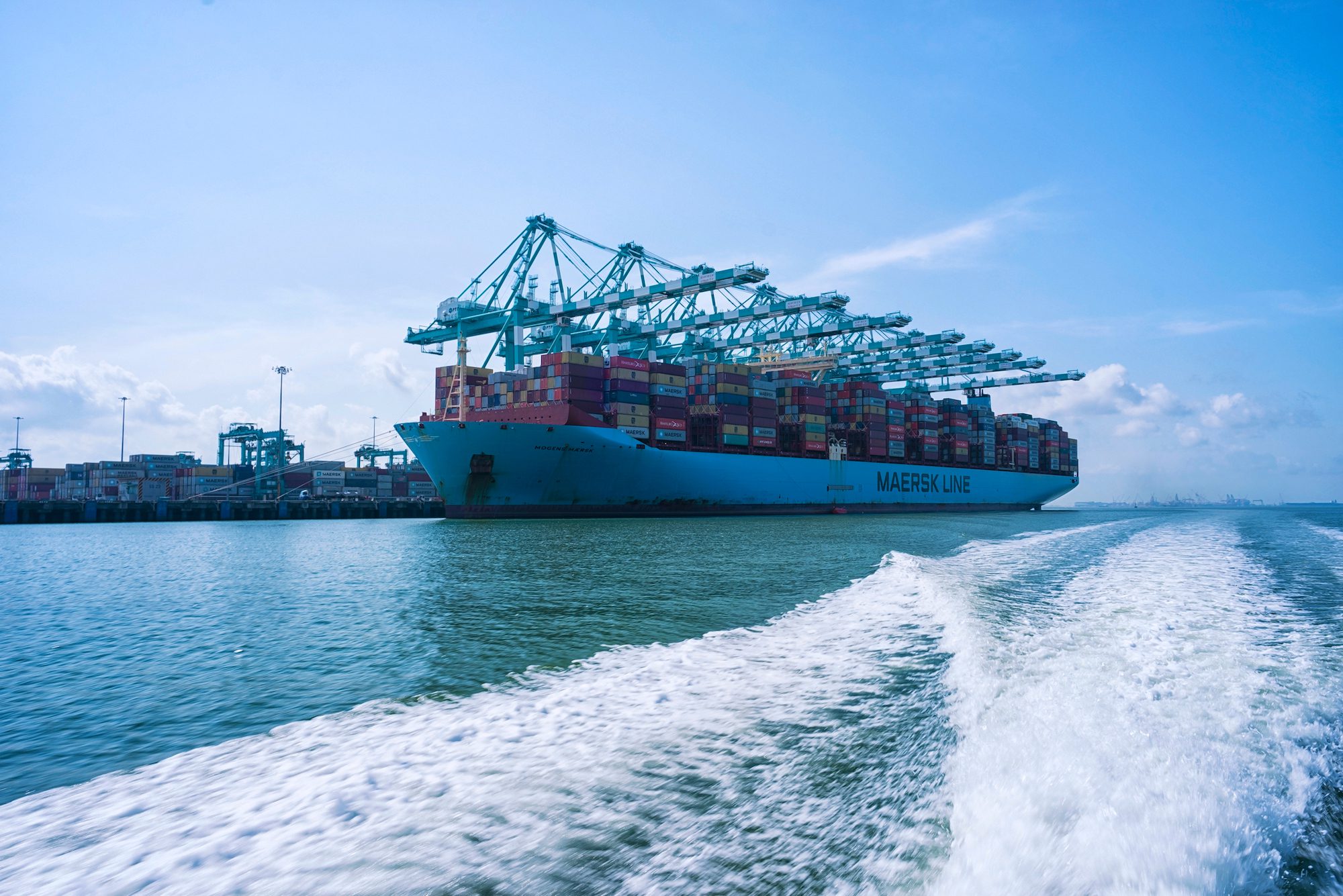Coast Guard crews escort the 674-foot Curacao-flagged semi-submersible heavy lift ship Blue Marlin to its anchorage location in Port Angeles Bay, Wash., April 17, 2015. U.S. Coast Guard Photo
By Paul Barrett
(Bloomberg Business) — Activists trying to stop Shell’s offshore oil drilling in the U.S.’s Arctic Ocean region invoke the interests of native Alaskans. “These communities depend on this environment for food and resources and have stewarded it for centuries,” Greenpeace says, as part of its “The People vs. Shell” campaign—what the group describes as possibly “the most important fight in environmental history.”
A lot of native Alaskans, including many who live along the state’s North Slope, would prefer that Greenpeace mind its own business. The locals depend on the oil business—many work directly for the industry—and welcome Shell’s exploration. “The NGOs aren’t really concerned about us,” says Rex Rock Sr., a whaling crew captain from the tiny hamlet of Point Hope. “Shut down oil and gas, and you would be turning out the lights in our villages.”
Whether Shell, or any other producer, ought to drill in the remote waters north and west of Alaska raises significant questions about the limits of human engineering, the consequences of a potential oil spill, and climate change. Industrial activity in Arctic waters, if not vigilantly regulated, could harm the region’s iconic fauna: walrus, bowhead whale, and polar bear. But for the human inhabitants of the North Slope, some 10,000 mostly Inupiat tribe members, oil means jobs and tax revenue.
The North Slope Borough, an umbrella municipal structure that incorporates the area’s chain of coastal villages, currently derives more than $300 million a year in taxes from on-shore oil operations, mostly at the enormous Prudhoe Bay field. “Without that revenue, we don’t have flush toilets, sewers, housing, high schools, or roads,” says Rock, who until recently coached his town’s famously winning Tikigaq High School basketball team.
Today, in addition to leading his seasonal whaling crew—they landed a 30-footer in April—Rock is president and chief executive of Arctic Slope Regional (ASRC), a for-profit company established under the 1971 Alaska Native Claims Settlement Act. Owned by Inupiat shareholders, ASRC has grown into a $2.4 billion-a-year mini-conglomerate with subsidiaries in oil-field services, construction, and information technology.
In 2009, ASRC approached Shell, seeking limits on the company’s activities to protect migrating whales (so villagers could kill and eat the beasts) and a piece of the economic action. Five years later, in 2014, ASRC and six North Slope village corporations created Arctic Inupiat Offshore (AIO). In exchange for an equity investment, AIO received the option to acquire an interest in Shell’s acreage and activities in the Chukchi Sea. “Now we have a seat at the table,” says Rock. “Shell has agreed to a lot of limits that will protect the whales and allow us to continue our traditional activities.”
Some native Alaskans see things differently. “Any activity offshore would cause harm to the Inupiat whaling way of life,” says Faith Gemmill, executive director of a nonprofit called Resisting Environmental Destruction on Indigenous Lands (REDOIL). North Slope residents “are depending on marine animals for their subsistence way of life.” REDOIL is a plaintiff in long-running litigation seeking to stop Shell through the courts. “The people we represent don’t want any development in the Arctic Ocean of any kind, no matter what,” adds Gemmill, a member of the Gwich’in tribe who now lives in Anchorage.
Attitudes have shifted over time. The Native Village of Point Hope, once the lead plaintiff in the litigation against Arctic Ocean drilling, dropped out of the suit in March and now openly supports Shell. “After careful consideration, we realized this litigation was preventing us from having meaningful discussions inside our region regarding responsible resource development,” Jack Schaefer, president of the Point Hope tribal government, said in a press release.
Separately, in an open letter published in May, Charlotte Brower, mayor of the North Slope Borough, excoriated Washington Governor Jay Inslee for urging the Obama administration to oppose offshore drilling. “It reeks of the paternalistic past when the state of Alaska was plundered by people from Washington and elsewhere who coveted our resources,” Brower wrote. “But instead of whales, fish, or timber, as it was in those days, it’s wilderness areas and romantic notions of what the Arctic should be that continue to drive outsiders to glibly advocate for limiting resource development.”
On July 30, Shell’s Polar Pioneer rig began preliminary drilling 70 miles northwest of Point Hope.
©2015 Bloomberg News

 Join The Club
Join The Club











